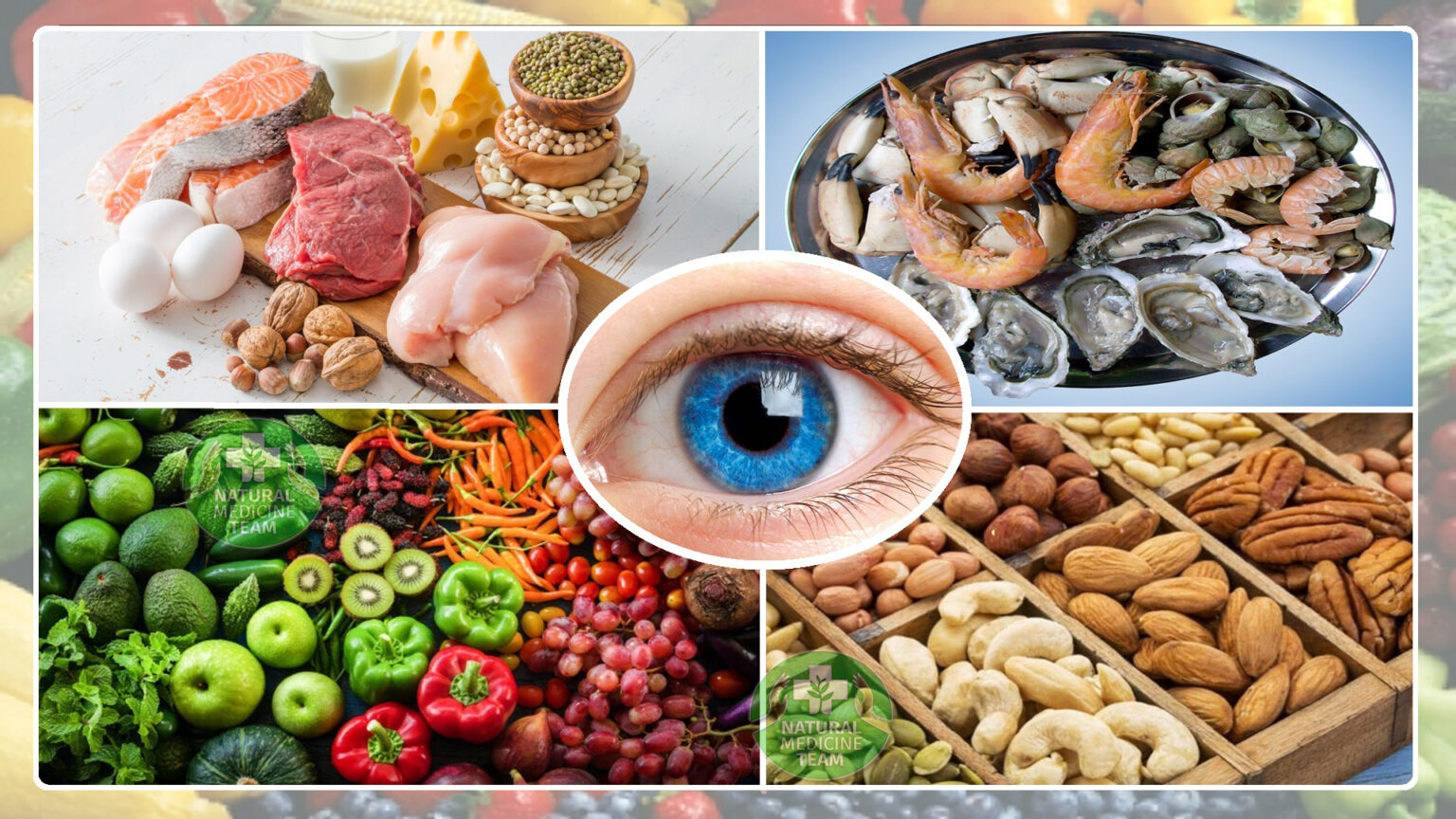Your eyes are intricate organs that depend on a variety of nutrients to function optimally and stay healthy. While genetics and lifestyle play a role in eye health, what you eat can significantly influence your risk of developing common eye conditions such as cataracts, macular degeneration, glaucoma, and dry eyes.
In this article, we’ll explore the best foods and nutrients for eye health and how incorporating them into your daily meals can help you protect your vision for years to come.
🥬 Why Nutrition Matters for Eye Health
A balanced, nutrient-rich diet:
- Reduces oxidative stress on the eyes
- Supports the health of the retina and cornea
- Slows the progression of age-related eye diseases
- Keeps eye tissues hydrated and nourished
Many eye conditions are linked to inflammation and nutrient deficiency, so improving your diet is a powerful way to preserve vision naturally.
🧠 Key Nutrients for Healthy Eyes (and Where to Find Them)
🥦 1. Lutein and Zeaxanthin
These are carotenoids found in the retina that filter harmful blue light and combat free radicals.
Food Sources:
- Kale, spinach, and other dark leafy greens
- Corn
- Peas
- Egg yolks
Why It Helps:
Reduces the risk of macular degeneration and cataracts.
🥕 2. Vitamin A
Essential for the production of rhodopsin—a pigment that helps you see in low light.
Food Sources:
- Carrots
- Sweet potatoes
- Pumpkin
- Cantaloupe
- Liver
Why It Helps:
Prevents night blindness and supports a healthy cornea.
🍊 3. Vitamin C
A powerful antioxidant that helps maintain blood vessels in the eyes and reduce inflammation.
Food Sources:
- Oranges
- Strawberries
- Bell peppers
- Broccoli
- Kiwi
Why It Helps:
May lower the risk of cataracts and macular degeneration.
🥜 4. Vitamin E
Protects eye cells from oxidative stress and age-related damage.
Food Sources:
- Almonds
- Sunflower seeds
- Hazelnuts
- Avocados
Why It Helps:
Combats free radical damage to delicate eye tissues.
🐟 5. Omega-3 Fatty Acids
Support the structure of eye cells and reduce inflammation.
Food Sources:
- Salmon
- Mackerel
- Chia seeds
- Walnuts
- Flaxseeds
Why It Helps:
Helps prevent dry eyes and may support retinal function.
🧂 6. Zinc
Zinc plays a vital role in transporting Vitamin A from the liver to the retina.
Food Sources:
- Chickpeas
- Lentils
- Pumpkin seeds
- Red meat
- Oysters
Why It Helps:
May slow the progression of age-related macular degeneration (AMD).
🍽️ Daily Eating Tips for Better Vision
- Add a cup of leafy greens to your lunch or smoothie
- Snack on nuts and seeds instead of processed chips
- Eat oily fish twice a week
- Replace sugary desserts with fruit rich in antioxidants
- Use colorful vegetables (peppers, carrots, tomatoes) in every meal
🧴 Bonus: Hydration and Eye Health
Don’t underestimate the power of water. Staying hydrated supports tear production and keeps your eyes lubricated, reducing the risk of dry eye syndrome.
Tip: Aim for 6–8 glasses of water per day, more if you live in a hot climate or use screens frequently.
FAQs About Nutrition and Eye Health
Q1: Can diet really prevent vision loss?
A: While it may not cure diseases, a healthy diet can slow progression and reduce your risk of age-related eye conditions.
Q2: Are carrots really good for your eyes?
A: Yes! Carrots are rich in beta-carotene (a form of Vitamin A), which supports night vision and corneal health.
Q3: Can poor nutrition lead to eye problems?
A: Absolutely. Deficiencies in key nutrients like Vitamin A and omega-3s can lead to dry eyes, night blindness, or retinal damage.
Q4: What are the best supplements for eye health?
A: Look for supplements containing lutein, zeaxanthin, zinc, Vitamin C, and E—often found in AREDS2 formulations for AMD.
Q5: How does sugar affect eye health?
A: Excess sugar can lead to blood sugar spikes, increasing the risk of diabetic retinopathy and blurry vision.
Q6: Are eggs good for vision?
A: Yes. Egg yolks contain lutein, zeaxanthin, and zinc—all beneficial for the eyes.
Q7: What’s the best fruit for eye health?
A: Oranges, berries, and kiwis are excellent due to their high Vitamin C content.
Q8: Can drinking coffee or tea impact my vision?
A: Moderate consumption is fine, but too much caffeine may cause dry eyes in sensitive individuals.
👁️🗨️ Conclusion: Feed Your Eyes for a Lifetime of Clear Vision
Vision is a precious gift—one that can be nourished through mindful eating. By incorporating antioxidant-rich fruits, vegetables, healthy fats, and hydration, you’re doing more than feeding your body—you’re protecting your eyes from age-related decline and enhancing your quality of life.
Start small: add greens to your plate, switch to nuts for snacks, or enjoy a piece of fruit daily. Your eyes will thank you—today, tomorrow, and for years to come.









